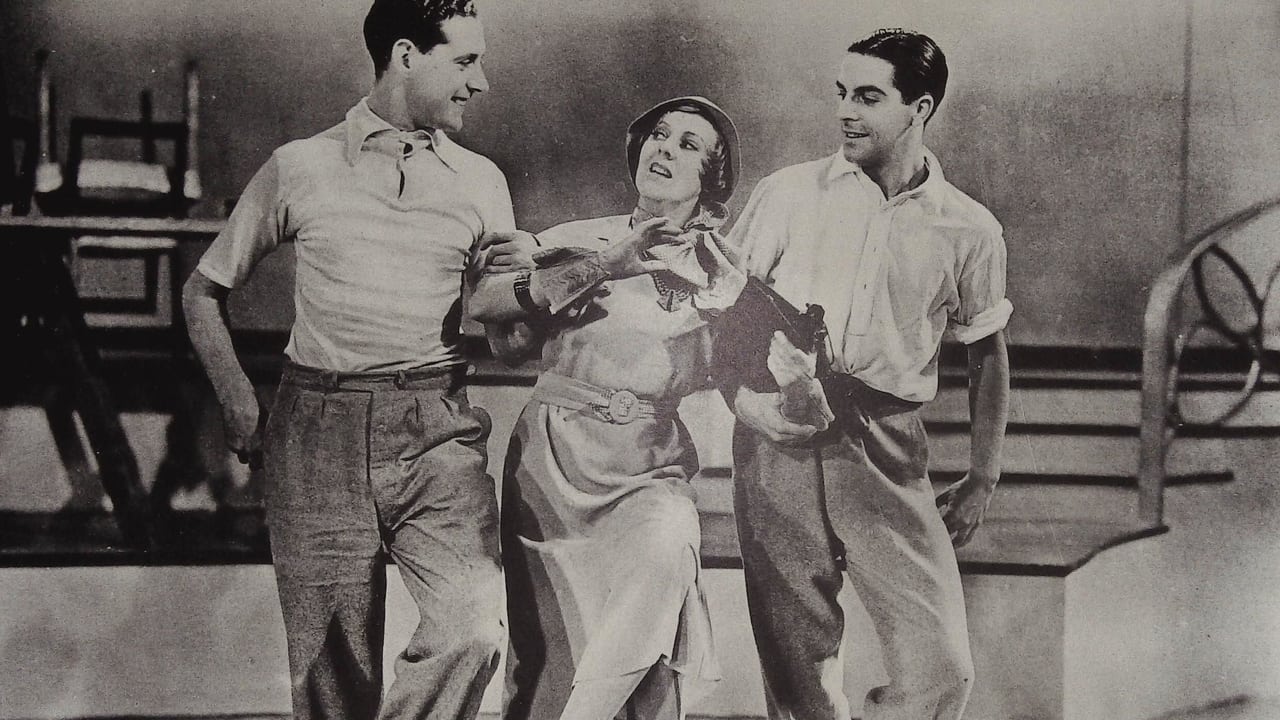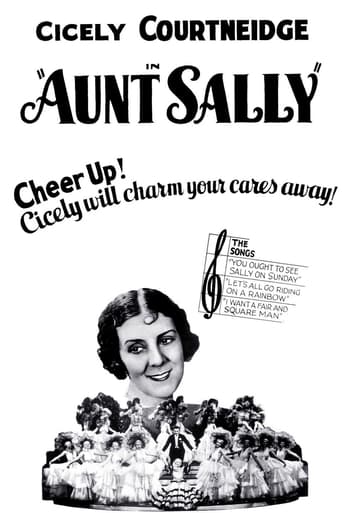



Such a frustrating disappointment
It is an exhilarating, distressing, funny and profound film, with one of the more memorable film scores in years,
View MoreA clunky actioner with a handful of cool moments.
Exactly the movie you think it is, but not the movie you want it to be.
View MoreSam Hardy came from New York to London so he could run night clubs without gangsters muscling in on his business. The gangsters followed to muscle in. Then along came Sally in the person of Cicely Courtneidge to audition, for Hardy, only to be promptly tossed out.Promptly getting a job as Hardy's parlor maid, she reinvents herself as a French cabaret star and fascinates Mr. Hardy, who decides to star her.... until the gangsters decide to sabotage everything by kidnapping the chanteuse.The songs in this musical number have not aged well, but they are pretty good for the era, and Miss Courtneidge's mugging and serio-comic Apache dance will please people with a bent for such matters. I was particularly taken by the big production number, "You Ought to See Sally on Sunday." The huge variety of camera angles, including the overheading crane shots, suggest Busby Berkley, but it never loses itself in fantasy, despite the dizzying perspectives. It all clearly takes place within the generous confines of the night club space, even when optical printing offers multiple images. It's a nice variation never pursued in Hollywood.
View MoreOkay, it was 1933, what do you want, slick, sophistication or sloppy slapstick. Well, you may want the first but you'll have to settle for the second. In its favor the film boasts four half-decent songs from the pen of Harry Woods and if you like Cicely Courtenidge you'll be in Hawg Heaven. This time around she was working without a net which is another way of saying she was without her usual partner (and also husband) Jack Hulbert, who could always be relied on to provide a shot of urbanity to offset her slapstick. The plot is about as believable as any musical plot in thirties Britain, in other words don't expose it to a strong light lest it disintegrate in front of your eyes. Given the time - the Great Depression - it was probably as good a slice of escapism as anything else.
View MoreI suspect that one's enjoyment of this comedy probably stands or falls on one's feelings about Miss Sally Bird: the Cinderella-plot requires that this zany matron, with her arch expression and incipient double chin, should triumph over her younger, prettier rival, and secure stardom and the heart of her employer thanks to her indomitable persistence -- and, of course, her Wonderful Personality.Unfortunately Cecily Courtneidge takes the character so far over the top that it's hard to see how anyone could fall for her -- it's not so much a wonderful personality as an extremely irritating one. Given the allure of the exotic (and the hilariously camp persona she then adopts) I can more or less swallow King Kelly's falling for the 'Zaza' act, and even for the woman behind it: but as soon as Sally launches into the revue numbers in her 'own' persona, I was expecting to see her sacked on the spot -- she may be brimming with self-belief, but Miss Bird's act is so broad that the character simply comes across as lacking in talent.When she is carrying out her escape -- however it may strain the bounds of plausibility -- she is actually quite resourceful and likable. I don't personally care much for slapstick, but that is not Miss Courtneidge's fault, and she certainly flings herself into her Apache act with admirable abandon (although a good deal of judicious cutting suggests that this sequence was not as stunt-heavy as it appears) and has no qualms about displaying a well-muscled pair of legs. But I'm afraid I just don't find the Sally Bird style of comedy funny.The other problem I have with this film is its reliance on a weak 'American' gangster plot to drive the action. Although other pictures of the era supposedly include transatlantic sequences to boost sales to the US market, it's hard to imagine that this sort of laboured 'Noo Yoik' material can have improved the film's reception among American home audiences, and as a plot device it's a cheap indulgence. (One notes that the American night-club entrepreneur is conveniently endowed with an impeccably English son to ease the accent burden somewhat!)There is little character development, and I never really became engaged with any of them, making such episodes as Billy getting shot or Queenie betraying Sally to the gangsters merely exercises in plot mechanics rather than carrying any emotional weight. And since neither Kelly nor Sally are presented as particularly likable characters, it's hard to understand why she should pursue him so hard, let alone why we should care about the outcome of the romance. The dance sequences appear somewhat cramped and not particularly imaginative, and the songs (by the same Harry Woods who would serve Jessie Matthews so well), while pleasant, seem nothing very special.Having said all that, however, I must hasten to add that the film is not the complete disaster that the above comments might appear to suggest. The juvenile leads are a pleasant couple (although under-used), there are moments of genuine humour, and ultimately, although it has its deficiencies, the entertainment value of "Aunt Sally" manages to survive its annoyance factor. I admit that I had hoped for rather more on my first viewing of the famous Cecily Courtneidge, and I wouldn't recommend that anyone go out of his way to see this picture, but in the end I did quite enjoy it: a "don't switch off" rather than a "seek out at all costs" verdict.
View MoreCicely Courtneidge was married to Jack Hulbert from 1916 - 1978, the year of his death. If there was ever a match made in Heaven that was it - they were true soul-mates. Their effervescent outlooks on life were identical, along with their senses of humour, singing, dancing and acting talents. They both had a "talent to amuse", unfortunately public amusement has turned to the cynically and morally corrupt since their hey-days, meaning the type of humour they displayed in the '30's is now as antiquated to most people as the Battle of Hastings.The copy I taped off UK TV in 1991 was titled "Aunt Sally", the British title. The term doesn't have to mean "empty", just someone or something that is a target for criticisms (or missiles!). Which does make it an apt title, because this and most types of pre-1955 low to middle-brow family entertainment films are easy targets to the modern mockers. However, the film itself is a pretty poor showing for the target CC, most of the laughs coming from the show owner Sam Hardy's downbeat wisecracks, trying to keep ahead of the "American" gangsters pressuring him for protection money. But at least it boasts two of Cicely's most popular numbers, "If I had Napoleon's Hat" but more especially "Riding on a Rainbow" with a big production routine to complement it and a different recording from the commercial 78 release. To my eyes and ears she put in a fantastic performance, with bravura camera-work too. Billy Milton blasts out "You ought to see Sally on Sunday", in a performance that sounds live and with every word beautifully enunciated. And Leslie Holmes' turn with Debroy Somers and his Band was wonderful to behold.So a pleasant outing for Cicely, but if you're also a fan of British Dance Bands like me the film is worth watching - and listening to of course! - for its musical content alone.
View More